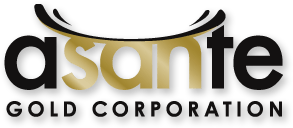
Group Reliability Engineer
- Ghana
- Permanent
- Full-time
Asante has an experienced and skilled team of mine finders, builders and operators, with extensive experience in Ghana. Our experienced team members are our most precious asset, having discovered, explored and developed more than 24Moz of gold resources and reserves in Ghana; and having managed Ghana's largest underground mine.About This RoleThe Group Reliability Engineer will be responsible for driving equipment reliability, availability, and performance across the company's mining operations. The role focuses on developing, implementing, and monitoring reliability strategies, systems, and processes to reduce downtime, optimize maintenance costs, and extend asset life cycles.This position provides technical leadership, develops long-term asset management strategies, and drives continuous improvement initiatives to support safe, sustainable, and cost-effective operations in line with corporate objectives.Key Responsibilities
- Strategy & Leadership
Standardize reliability programs, tools, and reporting across all three mining sites.
Provide leadership, coaching, and technical guidance to site-based reliability teams.
Drive a culture of asset integrity, predictive maintenance, and continuous improvement. * Technical Reliability & Asset ManagementOversee and implement reliability-centered maintenance (RCM), defect elimination, and root cause failure analysis (RCFA).
Lead implementation of condition monitoring technologies (vibration analysis, oil analysis, thermography, etc.) across all operations.
Develop group-level equipment performance metrics (MTBF, MTTR, OEE) and ensure consistent reporting and analysis.
Benchmark and standardize maintenance strategies for critical assets (crushers, mills, conveyors, mobile fleet, processing plants, etc.).
Review and optimize spare parts strategy and maintenance tactics to minimize downtime.
Ensure reliability considerations are integrated into capital projects and equipment selection. * Operational ExcellenceCoordinate cross-site reliability improvement projects and share best practices.
Identify systemic issues affecting equipment performance and develop solutions at the group level.
Reduce unplanned downtime and optimize asset lifecycle costs.
Collaborate with HSE teams to ensure equipment reliability contributes to safe mining operations.
Support operational readiness of new projects and expansions. * People & Stakeholder ManagementLead, mentor, and develop the reliability engineering teams at each site.
Engage with site General Managers, Engineering Managers, and Maintenance Superintendents to align reliability objectives.
Foster collaboration with OEMs, suppliers, and contractors for advanced technical support. * Key Performance Indicators (KPIs)Reduction in unplanned equipment downtime across sites.
Improvement in asset availability and overall equipment effectiveness (OEE).
Implementation and effectiveness of condition monitoring programs.
Standardization of reliability reporting across sites.
Cost savings through optimized maintenance strategies and reduced failures.
Talent development and retention within site reliability teams. * Operational Support & OptimizationProvide technical support to site maintenance and operations teams to improve equipment availability, utilization, and cost efficiency.
Analyze downtime and failure data to identify systemic issues across mining fleet and processing plants.
Standardize maintenance strategies, lubrication practices, and predictive maintenance tools across all mine sites.
Lead defect elimination initiatives and support rapid troubleshooting of recurring or high-impact failures.
Develop and implement group-wide reliability KPIs (e.g., MTBF, MTTR, OEE) and drive cross-site performance benchmarking.
Support shutdown planning and execution to ensure alignment with reliability and asset integrity standards. * Compliance, Safety & ESGEnsure reliability practices comply with local and international mining regulations, environmental standards, and other applicable laws.
Champion health and safety initiatives by integrating risk assessment and mitigation strategies into technical planning
Support ESG (Environmental, Social, and Governance) initiatives r by providing reliability-related data (e.g., energy efficiency of equipment, emissions linked to asset downtime, waste reduction from proper asset lifecycle management).
Incorporate reliability programs that support safe operation of critical mining and processing equipment.
Ensure environmental compliance by minimizing uncontrolled equipment failures that could lead to spills, emissions, or hazardous events.
Collaborate with HSE teams to ensure risk-based maintenance strategies mitigate safety and environmental risks. * Technical Leadership and DevelopmentProvide thought leadership in reliability engineering across all mining sites.
Mentor and coach site Reliability Engineers, Condition Monitoring Specialists, and Planners to build strong technical competencies.
Establish a technical development framework to grow Ghanaian reliability talent pipeline.
Introduce and embed advanced technologies such as predictive analytics, IoT, and AI-driven condition monitoring into mining operations.
Facilitate knowledge-sharing forums across sites to ensure lessons learned and best practices are adopted consistently.
Lead continuous professional development programs aligned with reliability standards.Education, Work Experience & Key Competencies
- Bachelor's degree in Mechanical, Electrical, Mining Engineering or a related field of study (Master's Degree preferred).
- Professional certification in reliability (e.g., CMRP, CRE) highly desirable.
- Minimum of 10 years' experience in maintenance/reliability engineering within the mining industry, with at least 5 years in a senior leadership role.
- Strong experience with heavy mining equipment (processing plants, fixed plant, and mobile fleet).
- Demonstrated success in implementing RCM, condition monitoring, and predictive maintenance programs.
- Excellent analytical, problem-solving, and decision-making skills.
- Strong leadership, coaching, and cross-cultural communication abilities.
- Exceptional problem-solving, decision-making and analytical skills.
- Ability to manage multiple projects and work effectively in a collaborative, fast-paced environment
- Strong communication and stakeholder management skills.
- Strong interpersonal skills and ability to foster collaboration with various stakeholders.